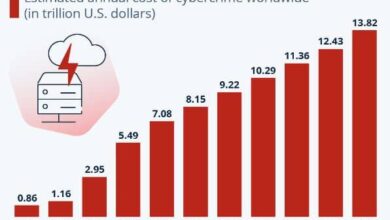Glendale CC plays role in White House cybersecurity event

By John Heckenlaible
Glendale Community College
Glendale Community College’s Gaucho Security Operations Center was been invited to participate in the White House Convening on Good-Paying Jobs in Cyber, a special event April 29 dedicated to the ongoing work to expand access to good-paying cyber jobs across all sectors of the economy.
The Office of the National Cyber Director developed the National Cyber Workforce and Education Strategy to address this national security and economic imperative.
The NCWES meets President Joe Biden’s call in the 2023 National Cybersecurity Strategy for ONCD to develop a strategy to expand the national cyber workforce, increase its diversity, and expand access to cyber education and training. Implementation of the NCWES is designed to expand opportunities nationwide for good-paying, middle-class jobs in cyber.
For educators, the NCWES supports instruction for skilled cyber workers and the teaching of foundational cyber skills to all Americans. It supports educational models that encourage the development of skills-based alternatives to four-year degrees and the alignment of adaptive digital skills to continuously evolving industry needs.
This event convened representatives from the federal government, the private sector, and regional and community-based workforce development organizations (approximately 165 in attendance) to highlight new actions to provide all Americans access to the opportunities made available by the Investing in America Agenda, including new commitments to hire and train cyber workers.
In addition – Rachelle Hall, program director of cybersecurity at Glendale Community College, was invited to participate as a panelist to share the work that GCC is doing to bridge the gap between academia and the workforce. She was one of five panelists for this portion of the meeting and shared what GCC is doing to prepare students for careers in cybersecurity.
The GSOC is the first operations center of its kind in the Maricopa Community College District, as well as in Arizona, to use a collaborative-hub model that gives back to the community by offering cybersecurity as a service.
Rural municipalities that need cybersecurity services can partner with GSOC and receive monitoring services from student interns, all at no cost. The program, and student-learning environment is in a newly refurbished section of the Business and IT building.
Glendale Community College GSOC serves the growing need for cybersecurity professionals in Arizona.
Interns will receive advanced skill development as a Security Operations Center Analyst and Engineer while helping to monitor against security breaches on clients’ network and other operations. The program will provide competency-based platforms, while creating career-ready pipelines for students while serving the community.
“The STEM grant for the West Valley Information Technology and Advancing Technologies provided the funding needed to get this program started. The GSOC provides students with the workplace-ready experience that is desperately needed. Students are in an endless loop – they need experience to get a position but cannot get experience without securing a position. This program provides students experience working in a live, security operations center, giving them workplace-ready knowledge and skills as they move into the cybersecurity industry or transfer on to a 4-year program.” Rachelle Hall stated in a press release.
The Cybersecurity program at Glendale Community College is a National Center for Academic Excellence in Cyber Defense (CAE-CD). The goal of the CAE program is to reduce vulnerability in information systems infrastructure by promoting higher education and research in cyber defense and producing professionals with cyber defense expertise.
The program is managed by NSA’s National Cryptologic School. Federal partners include the Cybersecurity and Infrastructure Security Agency, the Federal Bureau of Investigation, the National Institute of Standards and Technology/National Initiative on Cybersecurity Education, the National Science Foundation, the Department of Defense Office of the Chief Information Officer, and U.S. Cyber Command.
GCC is also the only institution in Arizona that is a partner institution of the U.S. Cyber Command Academic Engagement Network. There are a total of 84 institutions as of July 1, 2022, of which only 14 are community colleges.



